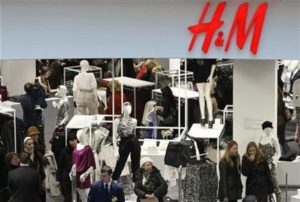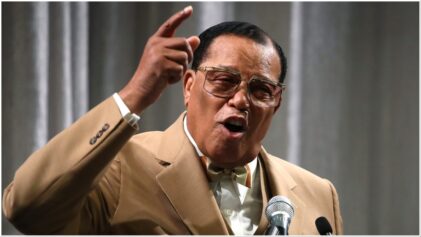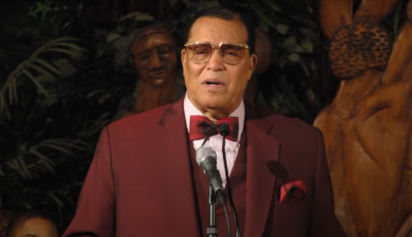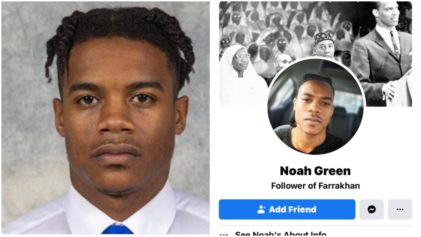
Recently, H&M came under fire after a tweet from its new South Africa location, which implied prejudice against Black models.
H&M want to convey the positive image of an SA without black folk. Basically. LOL. Yes. Ah. *exits* @after_thoughts_ pic.twitter.com/WehjGtfRMT
— Ottilia A MaSibanda (@MaS1banda) November 5, 2015
The company followed with a lackluster apology, explaining that the comment was misunderstood.
H&M regrets the response to a social media message that was recently aired on Twitter and wishes to clarify the intention of the message. In no way does H&M state that positivity is linked to an ethnic group. H&M is proudly a global brand that embraces all people who are inspired by fashion, regardless of ethnic background, gender or culture. We wish to [apologize] if our message has caused [offense] in any way as this was not the intention.
Of course some people are calling it a damage control tactic and not a real apology. After years of misrepresentation and exclusion, “I’m sorry” just doesn’t translate into actual remorse.
But that could all change. If Black people stopped putting their money into white business, racist comments could barely slip through the cracks. Black money is where the real power is. According to Cheryl Pearson McNeil, a vice president at Nielsen Company, “The Black population is young, hip and highly influential. We are growing 64 percent faster than the general market.”
Black consumers make 156 shopping trips per year compared to 146 for the total market. With $1.1 trillion in spending power, Black people spend most of that money on businesses run by non-Blacks. Not to mention, while Black people make up 13 percent of the population, only 7 percent are small business owners.
The NAACP reported on “dollar circulation” in the Black community.
“Currently, a dollar circulates in Asian communities for a month, in Jewish communities approximately 20 days and white communities 17 days. How long does a dollar circulate in the Black community? 6 hours! Black American buying power is at 1.1 Trillion; and yet only 2 cents of every dollar black spend in this country goes to black owned businesses.”
So it’s true. Black consumers spend most of their money outside of the Black community and, according to Nielsen Company, advertisers have repeatedly undermined the Black media, spending only three percent, or $2.24 billion, of the $75 billion spent with all media last year. Most companies allot only 3 percent of their advertising budgets marketing to Black consumers.
H&M doesn’t have to feel obliged to use Black models in their global marketing campaign because the numbers show Black people will shop anyway.
Imagine if that all changed.
If even half of that economic power was put into Black communities, it would certainly allow growth for Black investment groups, Black venture capital firms, Black enterprise, Black health insurance, and Black globally recognized corporations. Reportedly, if Black people existed as an independent nation, our wealth would be ranked 11th in the world. Businesses like H&M would call personally for more Black models. Corporations would exhaust budgets on advertising to Black consumers.
Make no mistake about it, Black money matters.
Now it seems Minister Louis Farrakhan’s request to boycott the Christmas “bonanza” makes more sense.
“We intend to boycott Christmas, but not Jesus,” Farrakhan explained in an interview with Roland Martin of NewsOne Now. “We think that they have taken advantage of us and our consumer dollars by materializing the respect and honor of Jesus and making it a bonanza for white business.”
Farrakhan’s boycott is an opportunity to support Black business like never before. Mainstream corporations start advertising for Black Friday before candy buckets get filled for Halloween. The holiday music in the department stores literally drowns out the small Black businesses who offer also apparel and services. In a country run like a corporation, money is the real striking point.
“So on Black Friday, we won’t be there. When they feel the pain of our withdrawal or our economic power from them, then we can talk about real change in America,” Farrakhan said. “Either [they are] going to treat us right or we’re going to withdraw our economic support. We intend to boycott Christmas, but not Jesus.”
Take for example the effect of the football players of Mizzou refusing to play when the university did not address racial injustices happening on its campus. Sport players bring in a lot of money to educational institutions, especially football. Without the players running around making millions for the school, officials were forced to address the problem. Since then, the president and another university official have stepped down. The reasons for their resignation stretch far beyond money undoubtedly, but it can be said that every day the players (and their multimillionaire coach) refused to play, the school lost more dollars.
Money talks— it shouts, actually.


